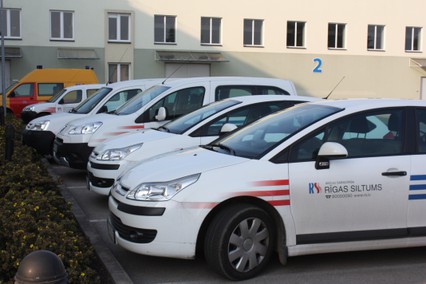Description
An HVAC technician or Heat Power Technician installs, maintains and repairs heating, air conditioning and refrigeration systems. HVAC is an abbreviation for heating, ventilation and air conditioning. Someone who works in this occupation may specialize in installation or in maintenance and repair and in either heating, air conditioning or refrigeration work.
Tasks:
1. Inspect, repair, modify and install HVAC equipment including refrigeration and air conditioning compressors, receivers, condensers, chillers, water cooling towers, forced air converter units, pumps, automatic and hand valves, expansion valves and capillary tubes.
2. Repair or replace defective parts in units and equipment and their controls, including thermostats, automatic switches, fan controls, log switches, damper motors, louvers, relays, filters, controls, belts, compressors, heat exchangers, high limit controls, pressure controls, safety valves, and automatic gas valves.
3. Operate a variety of hand and power tools, welder torch, vacuum pump, test equipment utilized in the trade and a motor vehicle; maintain equipment in effective and safe working condition; maintain parts and tool inventory
4. Repair and rebuild semi-hermetic reciprocating compressors and compressors for centrifugal refrigeration machines.
5. Test and examine boiler operations, observing meter and pressure gauges; conduct boiler water quality test and treatment; adjust boiler burner combustion.
6. Lubricate and pack heating, ventilation, refrigeration, and air-conditioning motors, pumps, fans, and other equipment.
Key skills for a HVAC technician:
United Kingdom:£24,619 per year
United States of America: $43,640 per year
Australia:AU$125,000 per year
Qualifications and training required:
Heating and cooling technicians typically need a high school diploma or GED. While some heating and cooling system installers train on the job, most learn through formal vocational training programs. Experience is often required, and some employers prefer applicants with working knowledge of commercial or residential heating and cooling systems.
Tasks:
1. Inspect, repair, modify and install HVAC equipment including refrigeration and air conditioning compressors, receivers, condensers, chillers, water cooling towers, forced air converter units, pumps, automatic and hand valves, expansion valves and capillary tubes.
2. Repair or replace defective parts in units and equipment and their controls, including thermostats, automatic switches, fan controls, log switches, damper motors, louvers, relays, filters, controls, belts, compressors, heat exchangers, high limit controls, pressure controls, safety valves, and automatic gas valves.
3. Operate a variety of hand and power tools, welder torch, vacuum pump, test equipment utilized in the trade and a motor vehicle; maintain equipment in effective and safe working condition; maintain parts and tool inventory
4. Repair and rebuild semi-hermetic reciprocating compressors and compressors for centrifugal refrigeration machines.
5. Test and examine boiler operations, observing meter and pressure gauges; conduct boiler water quality test and treatment; adjust boiler burner combustion.
6. Lubricate and pack heating, ventilation, refrigeration, and air-conditioning motors, pumps, fans, and other equipment.
Key skills for a HVAC technician:
- Good practical skills
- The ability to follow technical drawings, building plans and other instructions
- A safe and methodical approach to work
- The ability to take accurate measurements
- A head for heights and willingness to work in all sorts of weather
- To be comfortable with working in confined spaces
- Good written and spoken communication skills
- Good teamworking skills
- To adapt quickly to changing situations
- Good problem-solving skills
United Kingdom:£24,619 per year
United States of America: $43,640 per year
Australia:AU$125,000 per year
Qualifications and training required:
Heating and cooling technicians typically need a high school diploma or GED. While some heating and cooling system installers train on the job, most learn through formal vocational training programs. Experience is often required, and some employers prefer applicants with working knowledge of commercial or residential heating and cooling systems.
Companies in profession
Best students in profession
Professions you might be interested in
Virtual internship
Company recommended study programs
SIA "PREIĻU SAIMNIEKS"
1 recommendations
Siltumenerģētika un siltumtehnika
Rīgas Tehniskā universitāte
- 3 company recommendations
Startup Wise Guys Rīga
1 recommendations
Siltumenerģētika un siltumtehnika
Rīgas Tehniskā universitāte
- 3 company recommendations
EVA SISTĒMAS
1 recommendations
Siltumenerģētika un siltumtehnika
Rīgas Tehniskā universitāte
- 6 company recommendations
Latvenergo
1 recommendations
SILTUMENERĢĒTIKA
Rīgas Tehniskā koledža
- 4 company recommendations
In our portal we are using cookies. Using the portal, you agree to the use of cookies. You can find out more!
Accept


